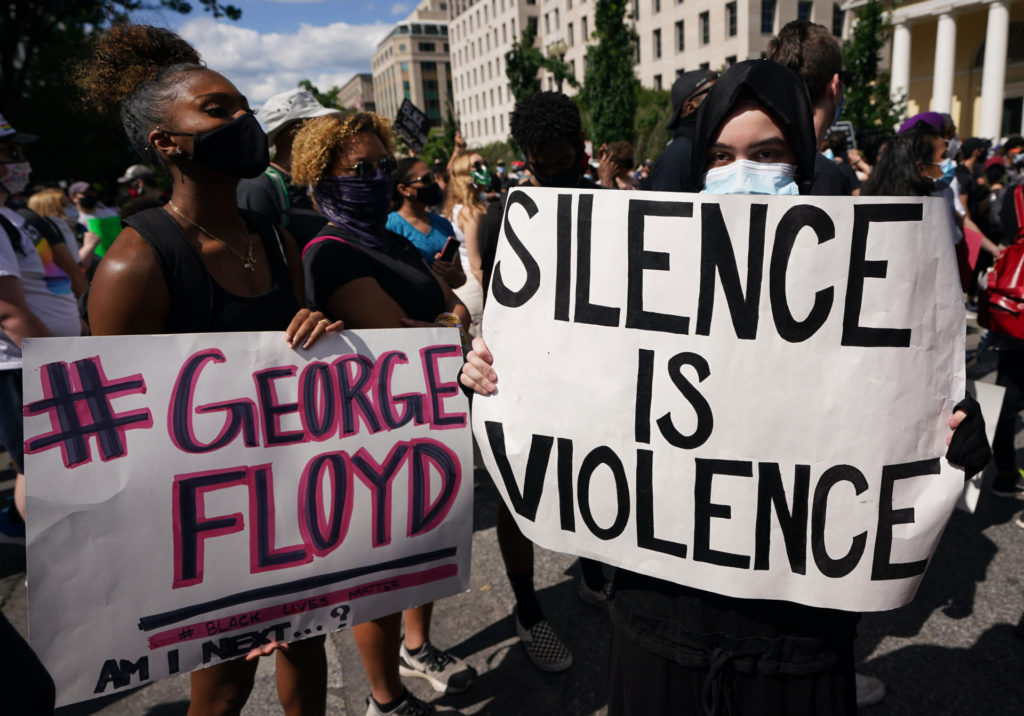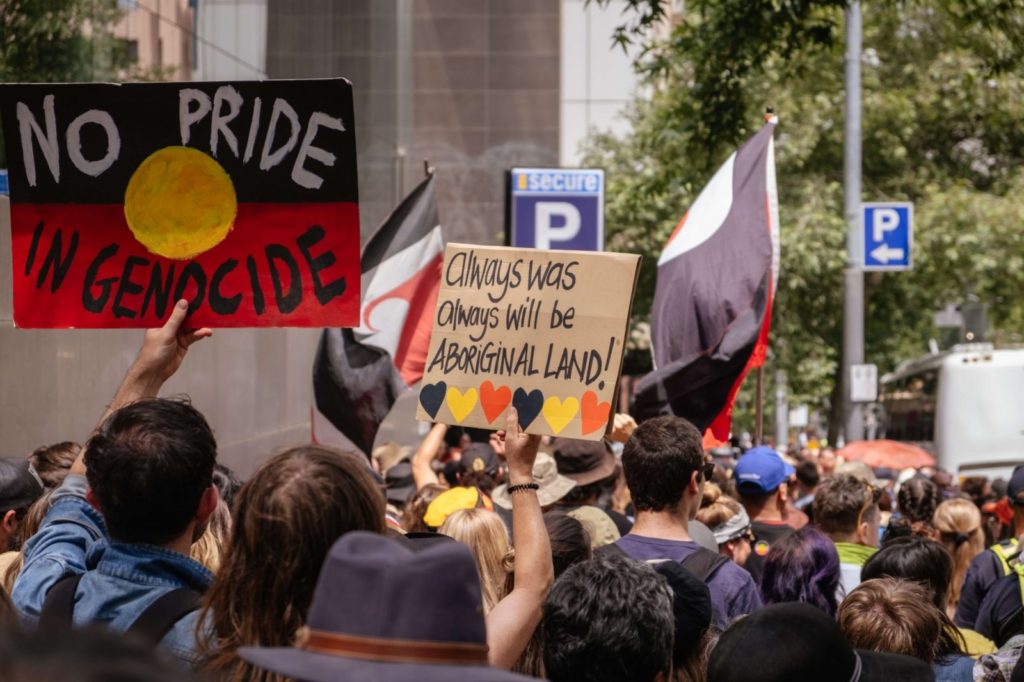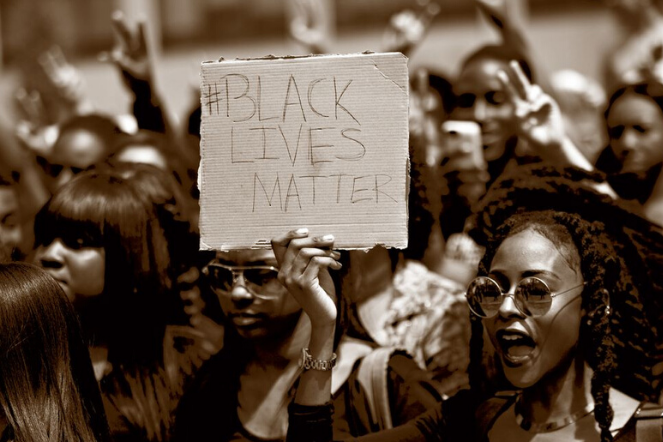Australia has long been a nation that lives in the shadow of the United States. Our music, television/film, fashion and even manner in which we speak is shaped by the North American giant. As of late American politics has also become a facet of everyday life that Australians seem to be more engaged with than our own politics. The 2016 United States Presidential Election alone seems to have gotten more Australian millennials engaged than the past three federal and state elections combined that took place within Australia.
The death of African American man George Floyd on May 25th, 2020 seems to prove that tragedy and racial injustice faced within the United States is also Australia’s burden to bear. While the sentiment is there and is, of course, a sign of solidarity for not just Floyd, but for the African American people of the United States who face racial injustice every day. We as a nation seem to forget that racial injustice towards Indigenous Australians is just as prevalent within our borders.

A study in conjunction with Beyond Blue found that 97% of Indigenous Australians have experienced racial injustice multiple times within their lives. This statistic seems to be ignored with the rhetoric of Australian millennials almost always swinging towards a similar statement. “I’m glad racism is not an issue within Australia” …
This statement alone is historically incorrect. Australia’s history as recent as 100 years ago was and is still shrouded with racism towards Indigenous Australians. December 23rd 1901, for example, saw the Immigration Restriction Act pass and become one of the first pieces of legislation to be formed by the newly federated nation of Australia. This act formed the basis of the ‘White Australia Policy’. The White Australia Policy was focused on the idea that people who were not white were somehow less advanced. The rhetoric at the time also highlighted that Indigenous Australians were a dying race and that the White Australia Policy was forward-thinking.
According to the National Museum of Australia it was not until 1966 under the Holt Government that these laws were on the route to be dismantled. However, it was not until the 1970s under the Whitlam government that the idea of the Immigration Restriction Act and in turn White Australia Policy were completely eliminated.
The right to vote has been advertised to us as a democratic right that can’t be taken away. Nevertheless, this democratic right was only given to Indigenous Australians following changes to the Commonwealth Electoral Act in 1962. Moving forward to the historic 1967 Referendum which finally saw Indigenous Australians given the basic right of being considered human and in turn have laws passed which pertain to Indigenous Australian issues. The referendum also saw Indigenous Australians given the right to be counted in the national census.
For those who still think this is all ancient history and that Australia is no longer full of racism, let’s fast forward closer to your lifetime. A study conducted between 1990 and 1995 by The Australian Human Rights Commission found that Indigenous Australians were 16.5 times more likely to die in custody compared to non-indigenous people. Indigenous Australians are also 1.26 times more likely to die in prison than non-indigenous people. The average age of Indigenous Australians who die in custody is 29 years old. While non-indigenous Australians were on average 35 years old.

These figures have resulted in one of the most ignored cases of racial injustice within Australian borders in recent history. The death of 432 Indigenous Australians at the hands of Australian police since 1991. Of the 432 Indigenous Australian deaths in custody according to the Australian Human Rights Commission 136 were given some sort of legal adherence in the form of a coroner, government or police response. While only 19 were given a full investigation as well as a trial and hearing.
The racial injustice faced by African Americans in the United States is obviously unfortunate and change needs to be made in regard to the issue of systemic racism. However, we as a nation must look in the mirror and recognise our own dark history before we call out other countries for their racial injustice.
Feature image source

